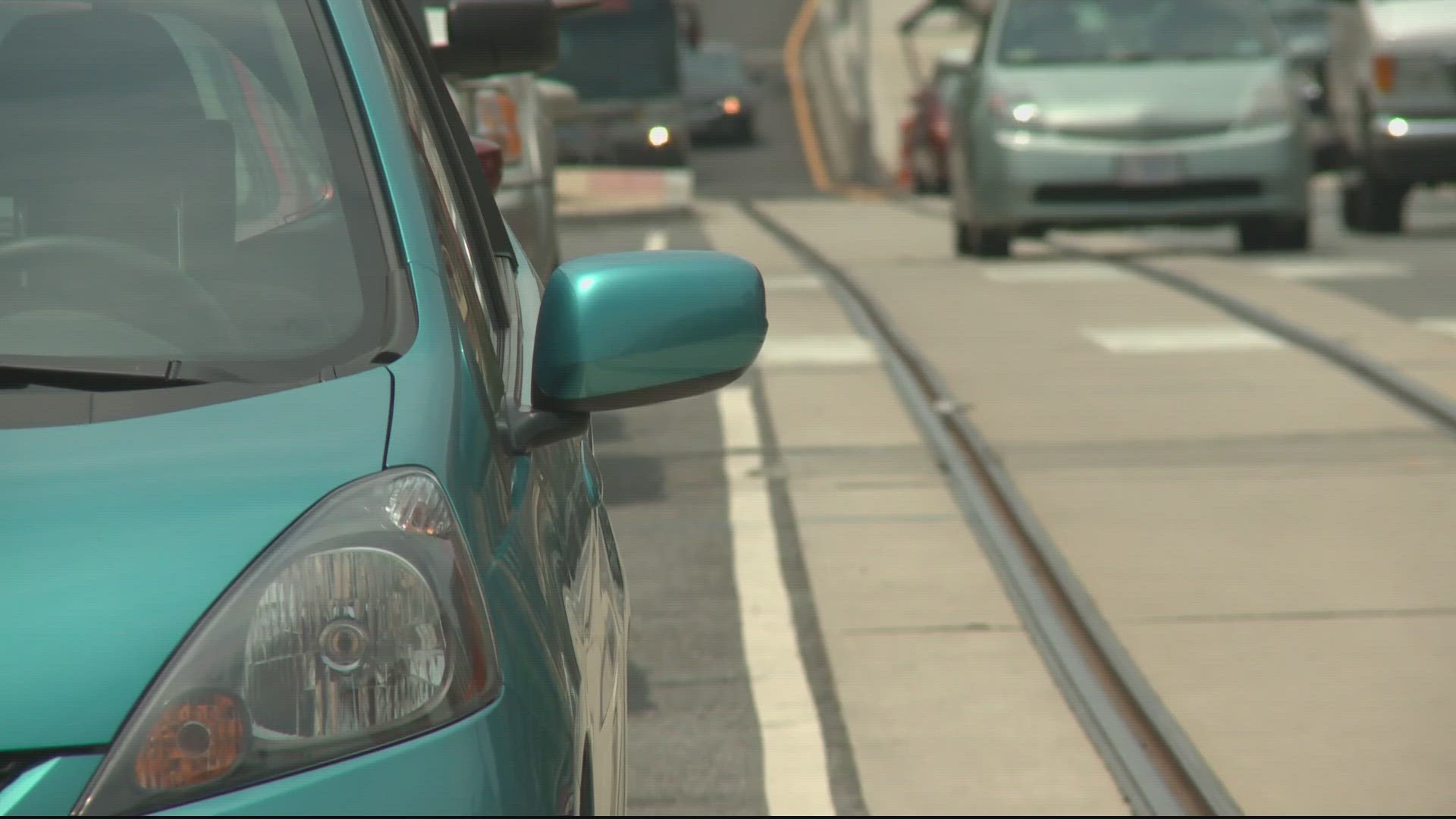WASHINGTON — As D.C. grapples with millions of dollars in unpaid traffic tickets, the council chair of the Public Works Committee is working to hold dangerous drivers accountable.
A March FOIA request to D.C.'s Department of Public Works revealed $889,187,824 in unpaid tickets in 2022.
“It's an incredibly high number, and we should be concerned about that," Ward 1 Councilmember Brianne Nadeau said.
She is the new chair of the Committee on Public Works and Operations.
“The public has been really clear about what they want to see here, and that's a focus on getting dangerous drivers and repeat offenders off the road," Nadeau said.
DPW can boot and tow these drivers, and Nadeau said adequate technology isn't the problem -- it's investing in it.
“I got to ride around with the person using the license plate reader. When there's a scofflaw vehicle -- that's one with unpaid fine -- it just pops up with the big alert on the screen so that we can call for a boot or a tow," Nadeau said. "The technology is actually with us. It's just making sure that as a government, we're prioritizing safety when we think about parking enforcement.”
In that same FOIA request, DPW shared that in 2022, they booted about 783 cars a month.
They also shared that as of March 9 of this year, there were 782,084 boot eligible vehicles.
Using those two numbers, that translates to booting about 1.2% of eligible vehicles.
Mayor Muriel Bowser believes one big traffic safety solution is adding more automated traffic enforcement cameras.
In her budget proposal last week, she announced that they'll start installing the 342 new approved ones this summer.
The council approved that addition in a past budget.
Her team estimates the additional cameras will bring in $578 million.
Nadeau wants to make sure that money is going toward traffic safety.
“One of the challenges that we're going to have in this budget, however, is that the Mayor has chosen to take the automated traffic enforcement revenue that council had designated for Vision Zero, and other safety measures and disperse it throughout the government for her other priorities instead," she said. "And so we're going to be very focused as a body on how to reverse that and put those funds back where they belong, which is keeping roads safe and keeping people safe.”
Another issue D.C. faces when it comes to holding reckless drivers accountable and collecting fines is reciprocity.
There isn't an agreement there with Maryland and Virginia, where there are consequences like license points or suspensions when drivers don't pay.
Nadeau said in a past oversight hearing, DPW shared that most of the vehicles they were booting were from Maryland and Virginia.
"And that's telling. So, if we were to pull the automated traffic enforcement footage and and data, we would see similar undoubtedly, right?" she said. "We are a small jurisdiction, people are coming here for work, for leisure. And we need those people to be respectful of those of us who are making their lives here. So it may be unlikely for us to get reciprocity. And thus, we have to think about other measures like changing the way we do automated ticket enforcement, applying points, and doing other things that allow us to actually get those drivers rather than just assign the ticket to their vehicles."

